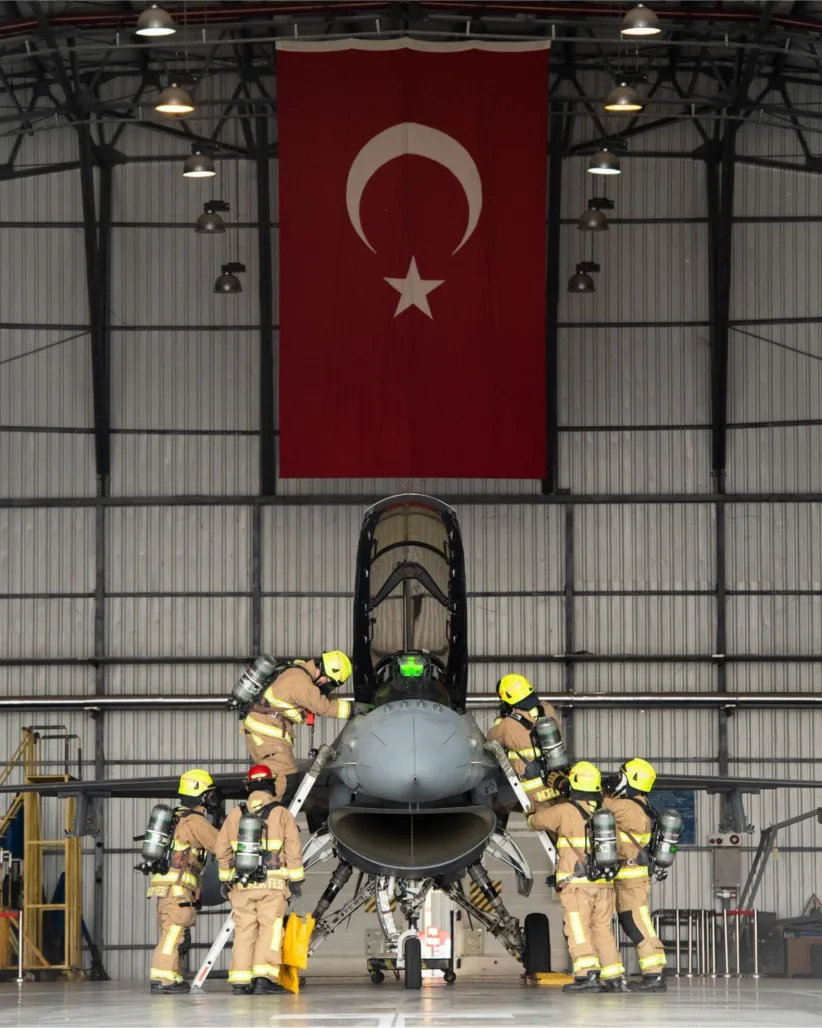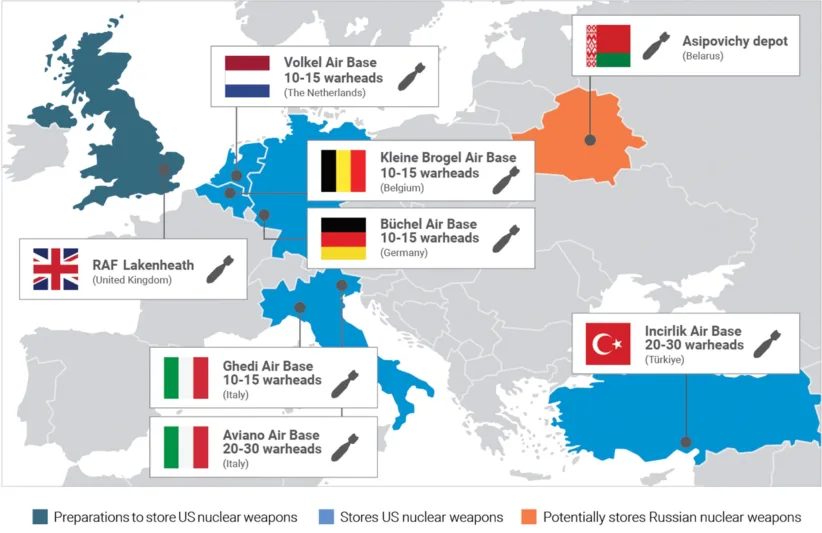The prohibition on allowing stationing, installation, or deployment
In 2024, seven states engaged in conduct that was not compatible with the Treaty on the Prohibition of Nuclear Weapons’ (TPNW) prohibition on allowing stationing, installation, or deployment of nuclear weapons. While the presence of Russian nuclear warheads on Belarusian territory has still not been confirmed, it is clear that both states have taken significant steps to advance a nuclear-sharing mission. In the United Kingdom, upgrades are being made at the United Kingdom’s air base Royal Air Force (RAF) Lakenheath to enable the return of US nuclear weapons to UK territory. Belgium, Germany, Italy, the Netherlands, and Türkiye continued to host a total of approximately 100 US B61 gravity nuclear bombs for NATO’s nuclear sharing mission.

As shown in the map below, forward-deployed US nuclear weapons are currently believed to be located at six air bases in Europe: Kleine Brogel in Belgium, Büchel in Germany, Aviano and Ghedi in Italy, Volkel in the Netherlands, and Incirlik in Türkiye. The nuclear-sharing relationships between the United States and its NATO allies were concluded prior to the adoption of the Treaty on the Non-Proliferation of Nuclear Weapons (NPT) in 1968; however, the legality of these arrangements under the NPT remain a source of international controversy and their deterrence value is often disputed. The respective hosting arrangements are thought to be governed by classified bilateral agreements, known as ‘Service-Level Agreements’, between the United States and the respective host state. Nuclear weapons are also occasionally transported between locations for deployment, retirement, maintenance, or modification.
For more information, see the 2024 edition of the Nuclear Weapons Ban Monitor.
Foreign-deployed nuclear weapons in Europe, 2024

ARTICLE 1(1)(g) - INTERPRETATION
Each State Party undertakes never under any circumstances to: ‘Allow any stationing, installation or deployment of any nuclear weapons or other nuclear explosive devices in its territory or at any place under its jurisdiction or control.’
- This provision outlaws a particular form of assistance or encouragement of prohibited action: allowing any stationing, installation, or deployment of any nuclear weapons or other nuclear explosive devices in a state party’s territory or at any other place under its jurisdiction or control.
- The TPNW’s prohibition against such hosting of nuclear weapons applies at all times, including during escalating tension or armed conflict.
- The concept of jurisdiction refers primarily to a state’s sovereign territory, while control extends to areas that the state party occupies or otherwise controls extraterritorially. This is irrespective of the legality of this control under international law.
- Deployment is the broadest of the three types of prohibited conduct. A violation would not require any prolonged duration, agreement, or infrastructure. Thus, although transit of nuclear weapons is not explicitly prohibited by the TPNW, if movement into the sovereign territory of a state party is not swiftly followed by exit, this might amount to assistance and encouragement to possess nuclear weapons as well as a violation of 1(1)(g).
- The duration of stay necessary to constitute deployment would depend on the surrounding circumstances—a shorter stay would suffice at a moment of high tension—but in normal circumstances would probably require at least 72 hours to contravene the prohibition in Article 1(1)(g).
- The NPT does not formally prohibit the stationing of nuclear weapons on the territory of non-nuclear-weapon states by any of the five designated nuclear-weapon states as long as it retains control over their use at all times. Many states consider nuclear sharing to pose a significant challenge to broader nuclear non-proliferation efforts.